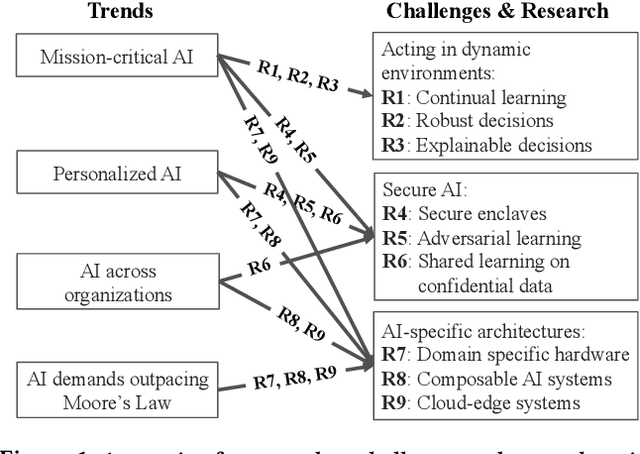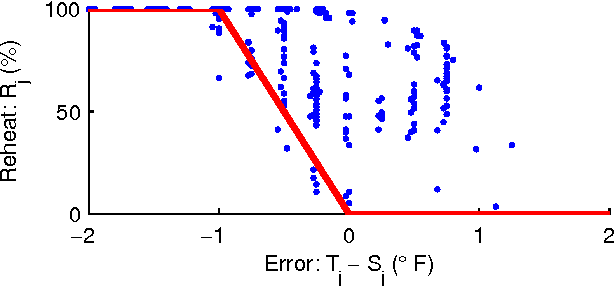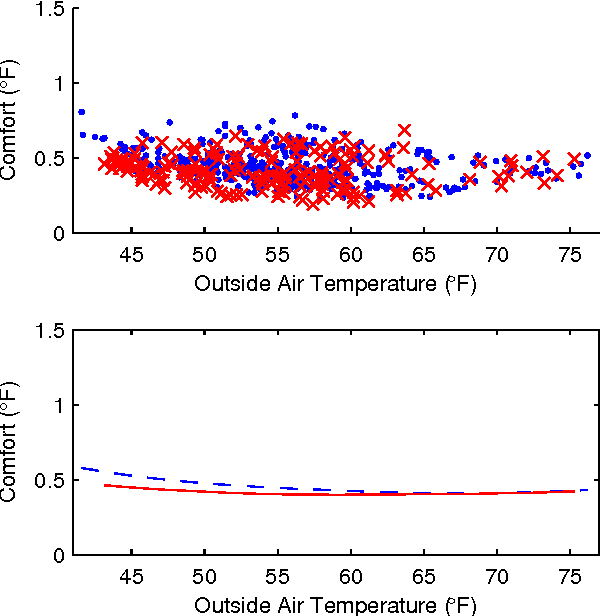David Culler
Concorde: Fast and Accurate CPU Performance Modeling with Compositional Analytical-ML Fusion
Mar 29, 2025Abstract:Cycle-level simulators such as gem5 are widely used in microarchitecture design, but they are prohibitively slow for large-scale design space explorations. We present Concorde, a new methodology for learning fast and accurate performance models of microarchitectures. Unlike existing simulators and learning approaches that emulate each instruction, Concorde predicts the behavior of a program based on compact performance distributions that capture the impact of different microarchitectural components. It derives these performance distributions using simple analytical models that estimate bounds on performance induced by each microarchitectural component, providing a simple yet rich representation of a program's performance characteristics across a large space of microarchitectural parameters. Experiments show that Concorde is more than five orders of magnitude faster than a reference cycle-level simulator, with about 2% average Cycles-Per-Instruction (CPI) prediction error across a range of SPEC, open-source, and proprietary benchmarks. This enables rapid design-space exploration and performance sensitivity analyses that are currently infeasible, e.g., in about an hour, we conducted a first-of-its-kind fine-grained performance attribution to different microarchitectural components across a diverse set of programs, requiring nearly 150 million CPI evaluations.
A Berkeley View of Systems Challenges for AI
Dec 15, 2017
Abstract:With the increasing commoditization of computer vision, speech recognition and machine translation systems and the widespread deployment of learning-based back-end technologies such as digital advertising and intelligent infrastructures, AI (Artificial Intelligence) has moved from research labs to production. These changes have been made possible by unprecedented levels of data and computation, by methodological advances in machine learning, by innovations in systems software and architectures, and by the broad accessibility of these technologies. The next generation of AI systems promises to accelerate these developments and increasingly impact our lives via frequent interactions and making (often mission-critical) decisions on our behalf, often in highly personalized contexts. Realizing this promise, however, raises daunting challenges. In particular, we need AI systems that make timely and safe decisions in unpredictable environments, that are robust against sophisticated adversaries, and that can process ever increasing amounts of data across organizations and individuals without compromising confidentiality. These challenges will be exacerbated by the end of the Moore's Law, which will constrain the amount of data these technologies can store and process. In this paper, we propose several open research directions in systems, architectures, and security that can address these challenges and help unlock AI's potential to improve lives and society.
Energy-Efficient Building HVAC Control Using Hybrid System LBMPC
Apr 20, 2012



Abstract:Improving the energy-efficiency of heating, ventilation, and air-conditioning (HVAC) systems has the potential to realize large economic and societal benefits. This paper concerns the system identification of a hybrid system model of a building-wide HVAC system and its subsequent control using a hybrid system formulation of learning-based model predictive control (LBMPC). Here, the learning refers to model updates to the hybrid system model that incorporate the heating effects due to occupancy, solar effects, outside air temperature (OAT), and equipment, in addition to integrator dynamics inherently present in low-level control. Though we make significant modeling simplifications, our corresponding controller that uses this model is able to experimentally achieve a large reduction in energy usage without any degradations in occupant comfort. It is in this way that we justify the modeling simplifications that we have made. We conclude by presenting results from experiments on our building HVAC testbed, which show an average of 1.5MWh of energy savings per day (p = 0.002) with a 95% confidence interval of 1.0MWh to 2.1MWh of energy savings.
 Add to Chrome
Add to Chrome Add to Firefox
Add to Firefox Add to Edge
Add to Edge